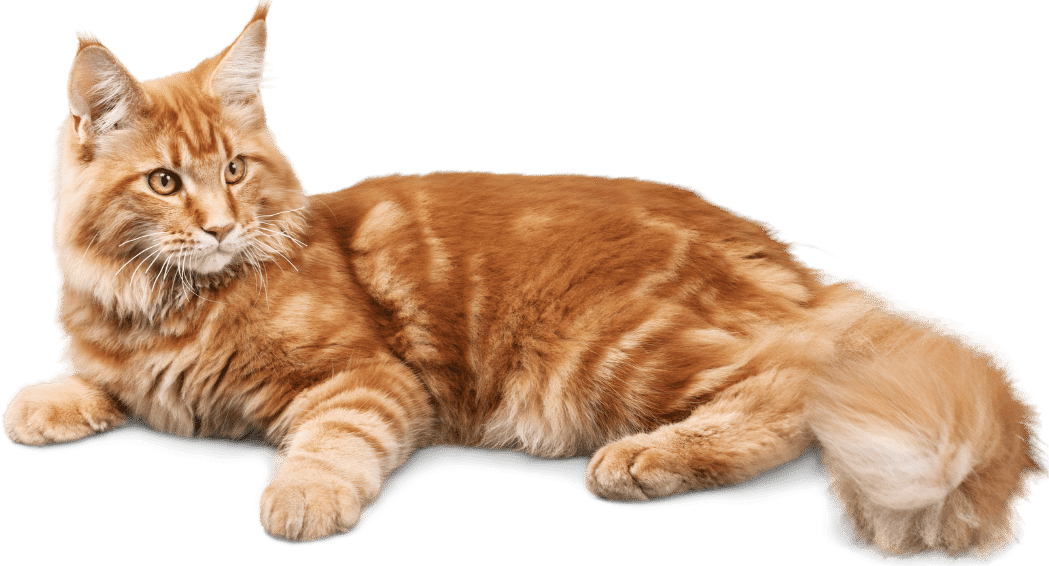The Sleek and Strong Doberman Pinscher: A Guide to This Powerful Dog Breed
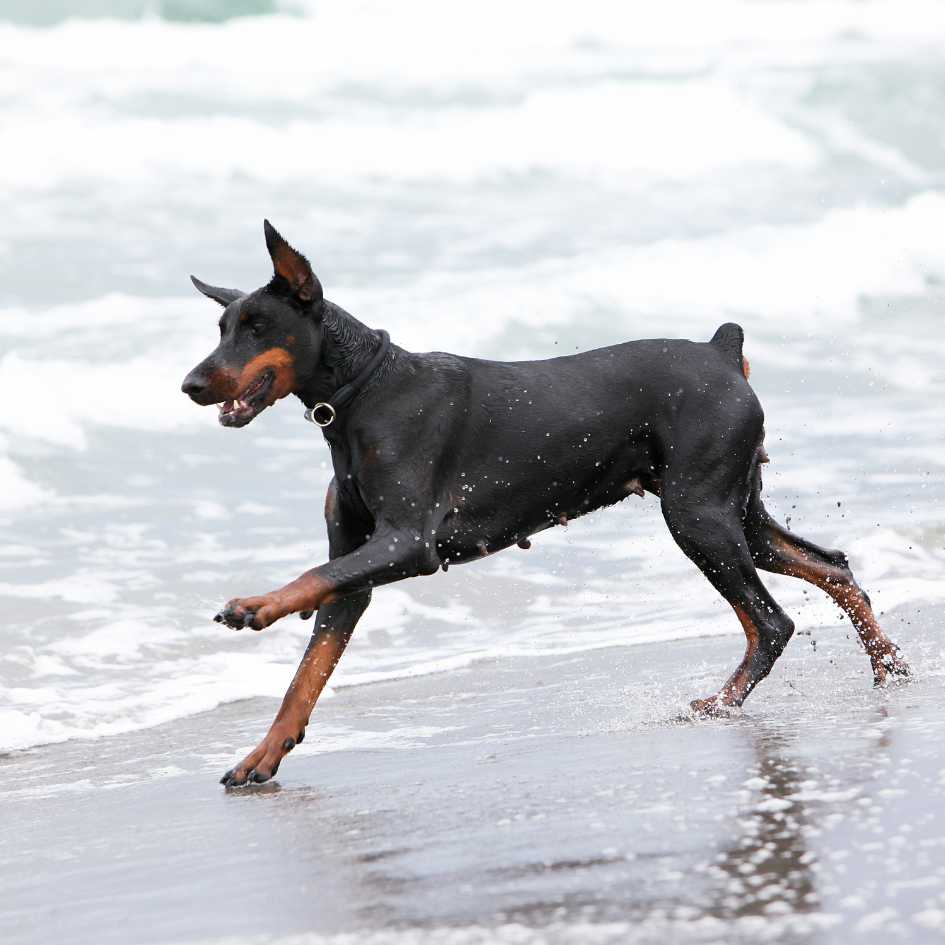
The Doberman Pinscher dog breed is renowned for its intelligence, loyalty, and athletic prowess. This breed is more than just a fierce-looking protector — it’s a loving, devoted companion that thrives in the right environment. Whether you’re considering adding a doberman to your family or are simply curious about this iconic breed, this article covers everything from the history and temperament of dobermans to detailed care tips that help ensure your doberman leads a happy and healthy life.
Read on to explore the origins of the doberman pinscher, understand its physical and mental needs, and learn essential grooming, feeding, and health information that every responsible pet owner should know. This comprehensive guide is a must-read for pet parents thinking about life with a doberman.
What Is the History Behind the Doberman Pinscher?
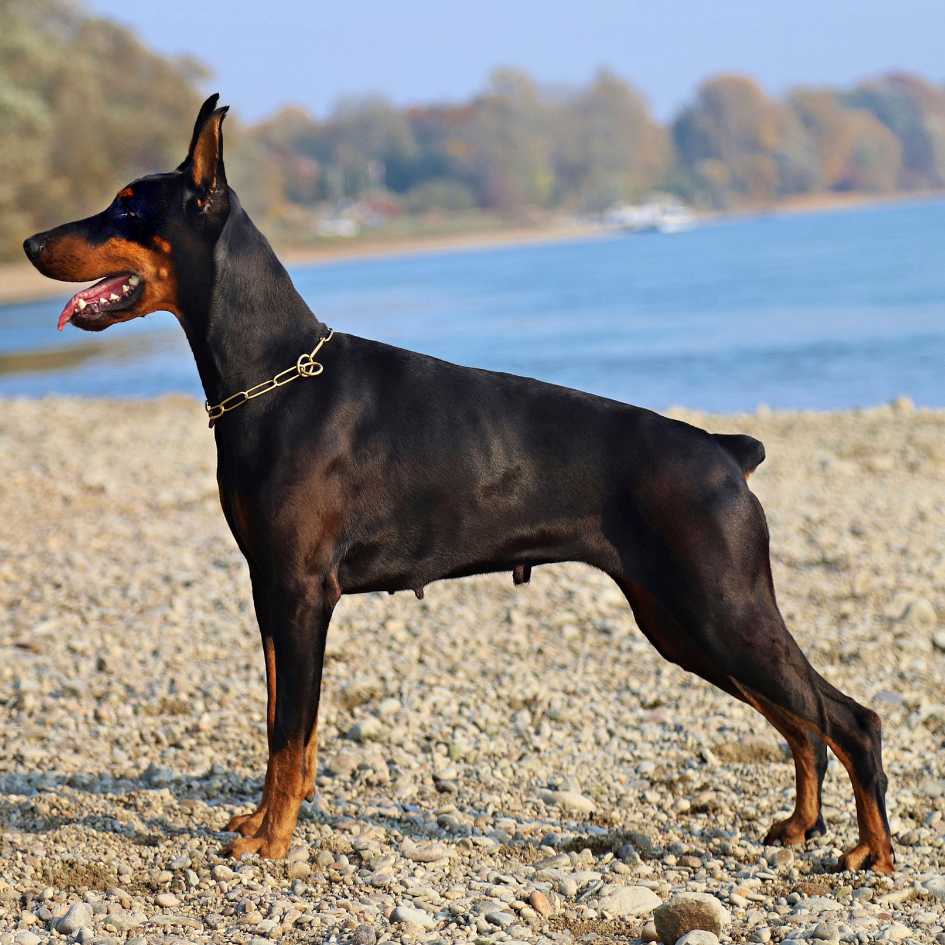
The doberman pinscher has a fascinating origin. The breed was first bred in the late 19th century by Louis Dobermann, a German tax collector seeking a loyal and protective companion to accompany him during his rounds. He combined several breeds — including the german pinscher, rottweiler, and greyhound — to create a dog that was both agile and alert.
Over time, the doberman became known not only as a formidable guard dog but also as a loyal pet. Today, the doberman pinscher dog breed is celebrated for its bravery, intelligence, and loyalty, making it one of the most recognized and respected dog breeds worldwide.
What Does a Doberman Look Like and How Big Do They Get?
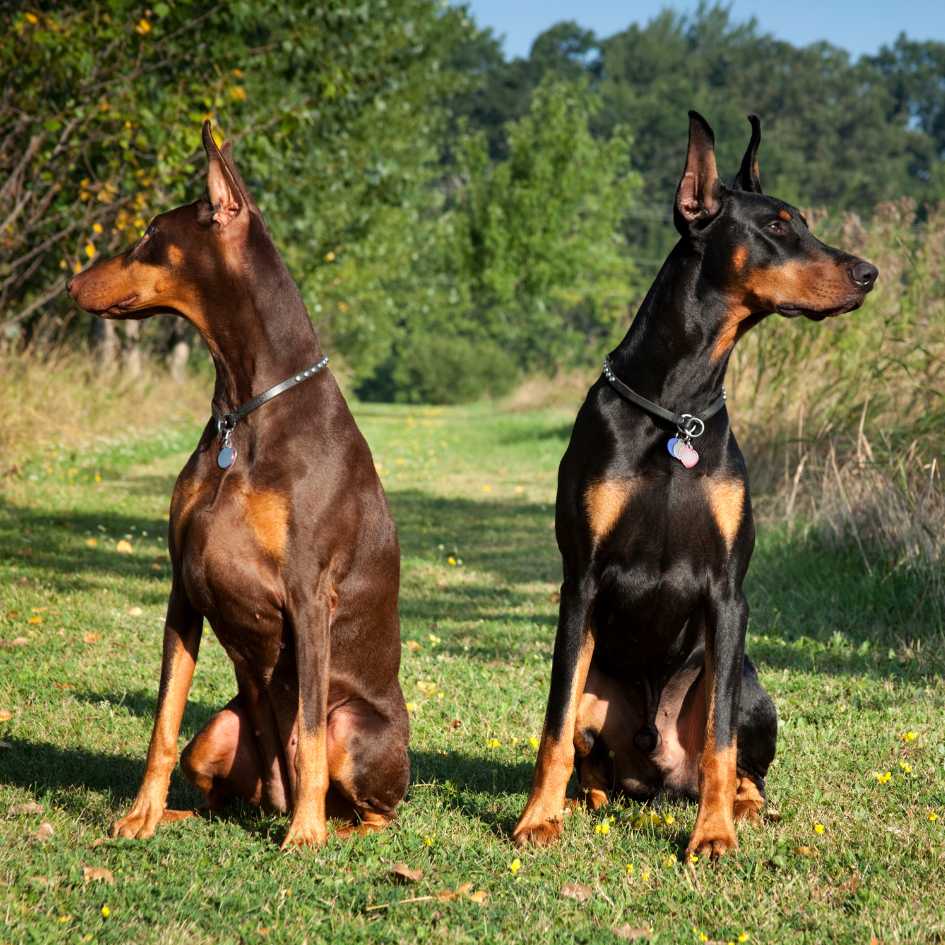
Dobermans are known for their sleek and muscular physique, often sporting a short coat in the classic black and tan coloration. Their sleek coats require minimal grooming, but their striking appearance commands attention.
Adult dobermans typically weigh between 60 to 100 pounds and stand about 24 to 28 inches tall at the shoulder. This makes them a large breed with powerful, athletic bodies ideal for an active lifestyle. Their noble appearance is often enhanced by ear cropping and tail docking, though organizations like the American Veterinary Medical Association discourage such practices unless medically necessary.
What Is the Temperament of a Doberman?
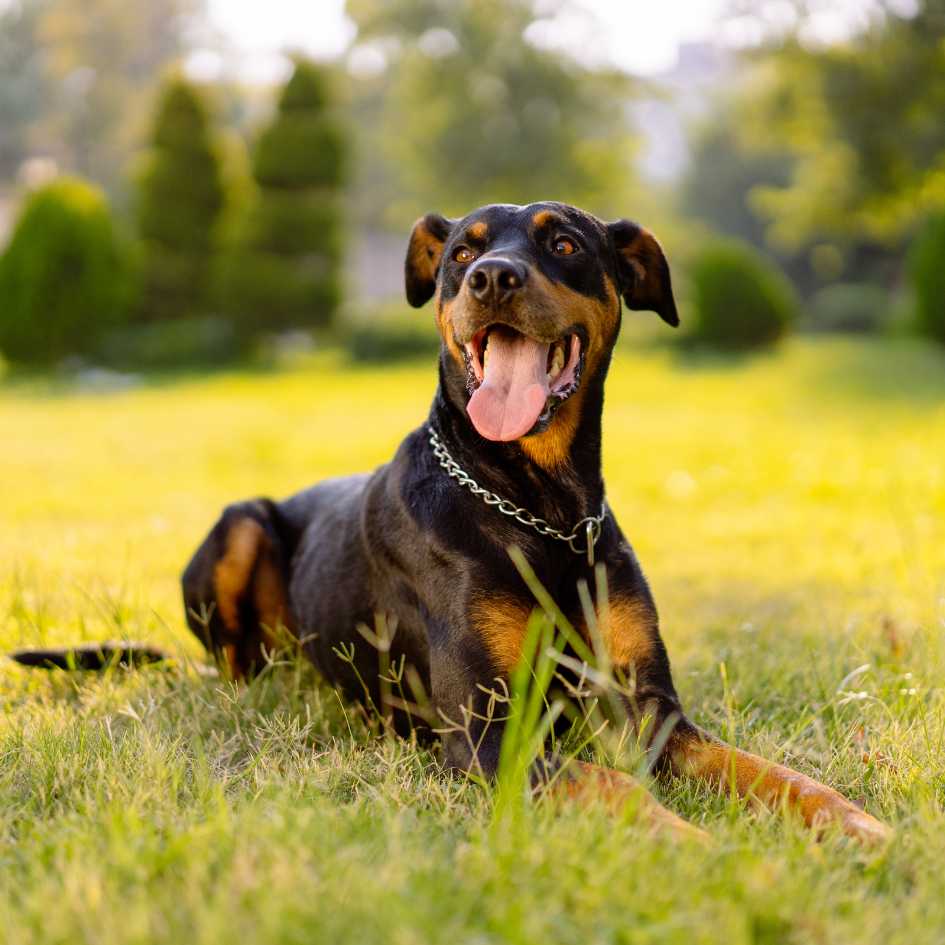
The temperament of the doberman is a balanced blend of alertness, loyalty, and confidence. They are often strong-willed yet incredibly affectionate with their families, making them excellent family dogs when properly trained and well-socialized.
Early socialization is essential to help dobermans develop a calm and confident demeanor. Without it, they may become overly wary of strangers or new environments. A well-raised doberman is typically fearless but not aggressive, loyal but not overly dependent — a true protector and companion.
Are Dobermans Good Family Dogs?
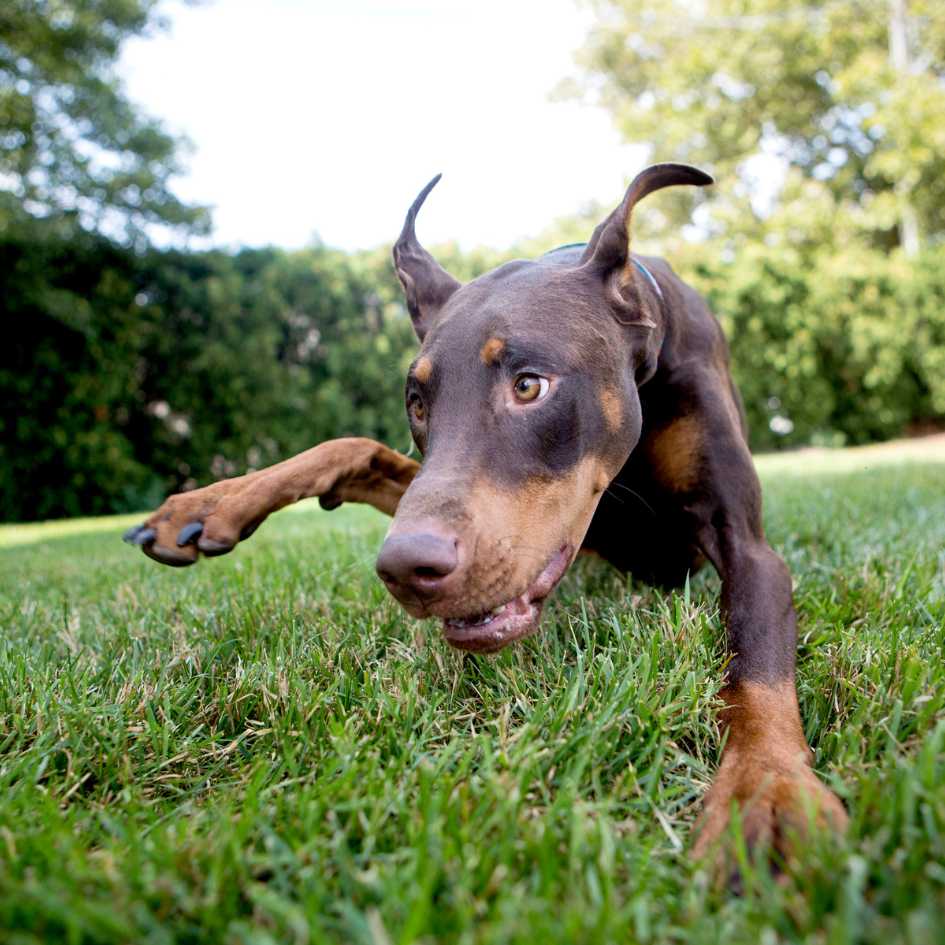
Despite their tough appearance, doberman pinschers are known to form strong bonds with their families. They are protective of children and thrive in homes where they receive plenty of attention and interaction. They can be playful and loving, often seeking affection and companionship from their pet parents.
However, dobermans do best in homes that offer consistent structure. They aren’t suited for absentee owners or people who can’t commit to regular training sessions and exercise. When raised in a nurturing environment, doberman pinschers can be affectionate, well-mannered, and incredibly loyal family dogs.
How Do You Groom a Doberman Pinscher?
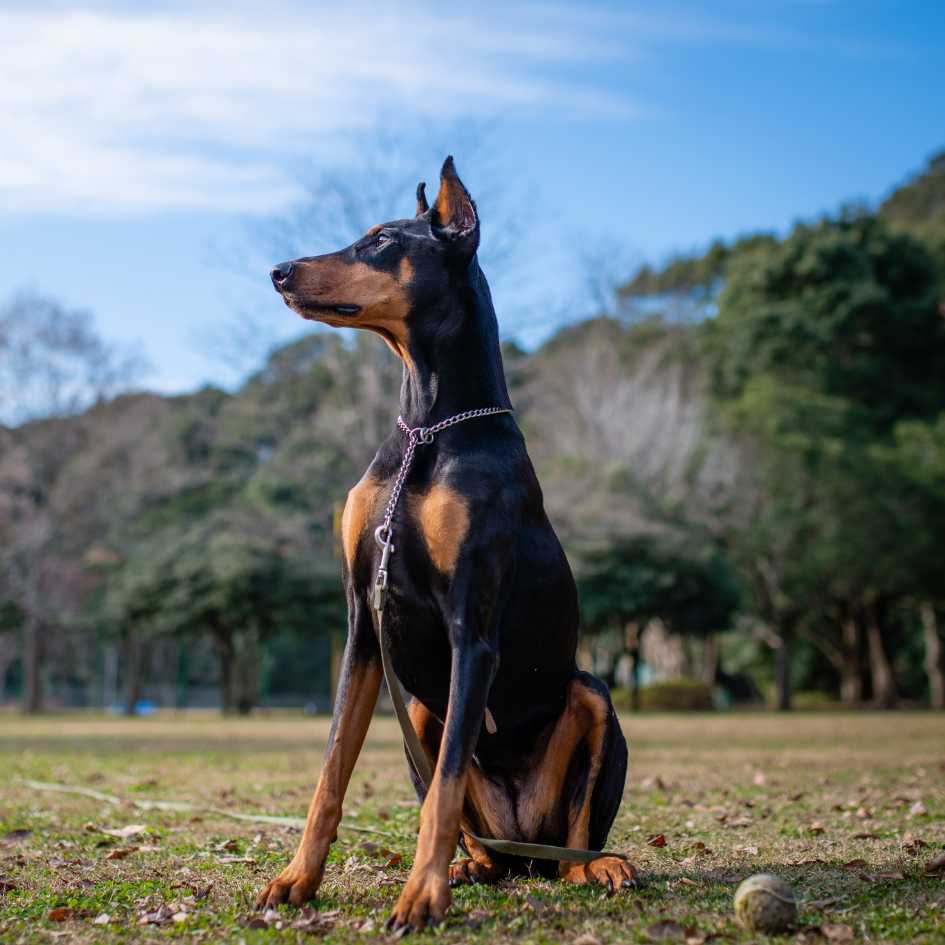
One advantage of the doberman pinscher is that it’s a relatively low-maintenance dog in terms of grooming. Their short coat and sleek body mean that shedding is minimal. However, regular doberman pinscher grooming is still essential to keep their coat shiny and their skin healthy.
To properly groom a doberman, brush them weekly to remove dead hair and stimulate skin oils. Bathing should occur every few weeks or when they get dirty. Don’t forget regular nail trims, ear checks (especially if the ears are cropped), and dental care. Proper grooming contributes to the overall health of the doberman.
What Health Issues Are Common in the Doberman Breed?
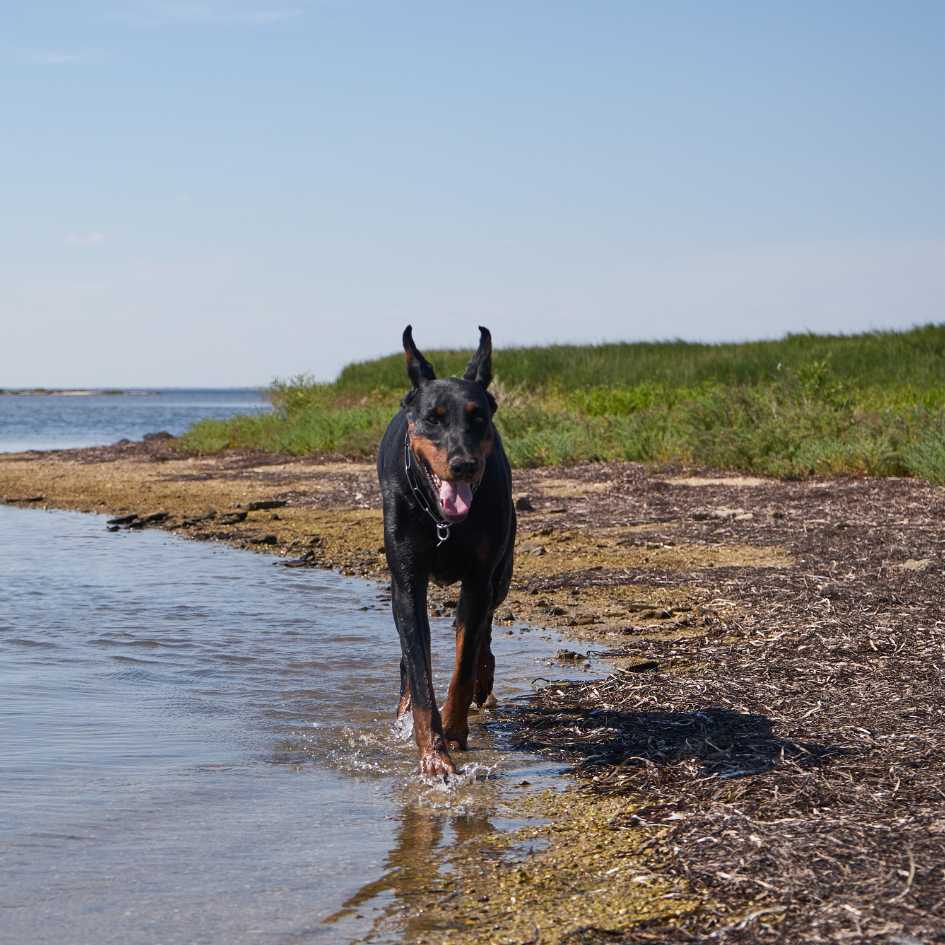
Like all breeds, dobermans are prone to certain health conditions. The most concerning is dilated cardiomyopathy (DCM), a heart condition that affects the muscle’s ability to pump blood efficiently. Dobermans are particularly predisposed to dilated cardiomyopathy, and early detection is crucial. Symptoms may include fatigue, coughing, or even congestive heart failure in advanced stages.
Other health issues include hip dysplasia, arthritis, hypothyroidism, and dilatation-volvulus (bloat). Some dobermans also suffer from Von Willebrand’s Disease (dogs with vWD), which causes prolonged bleeding due to clotting problems. To help manage these risks, regular vet visits, veterinary diagnostics, and preventive care — including heart screenings — are essential.
How Should You Feed and Exercise a Doberman?
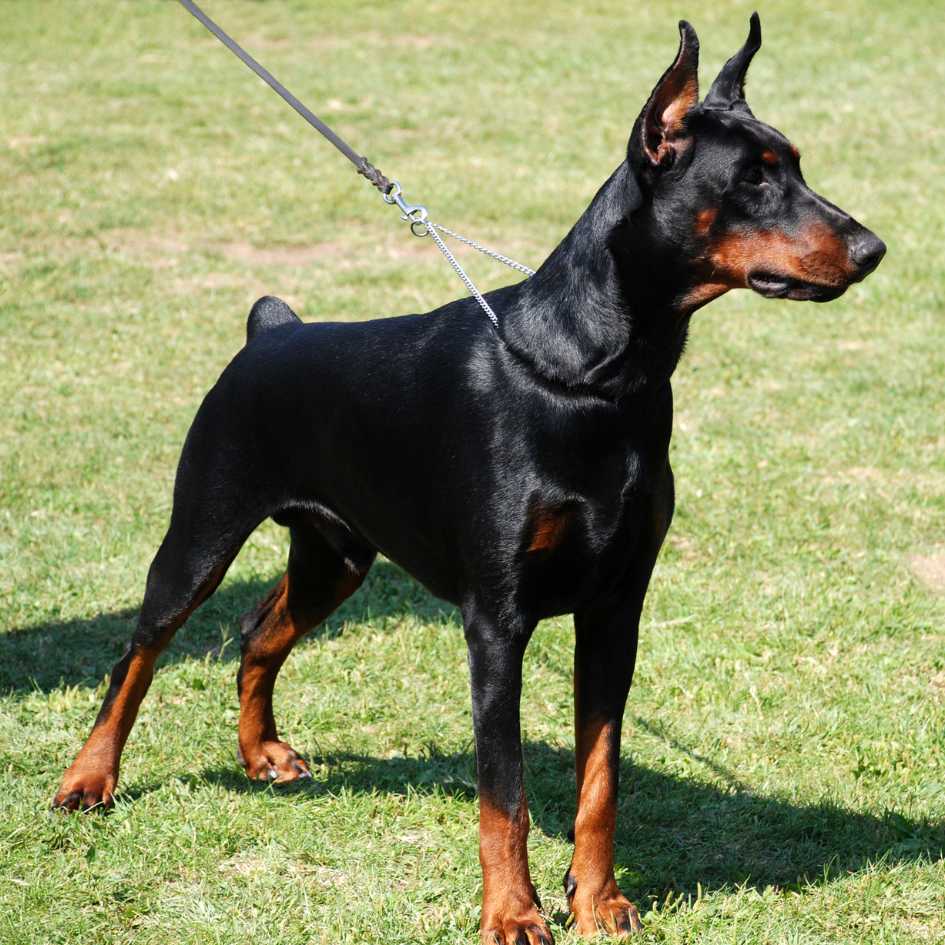
A balanced diet is key to ensuring your doberman leads a happy and healthy life. High-protein dog food, portioned correctly, can prevent obesity and support their high activity levels. You should avoid overfeeding and offer joint supplements like glucosamine and chondroitin, especially in older adult dobermans, to combat arthritis.
Exercise is vital for maintaining both physical and mental stimulation. A doberman dog needs at least an hour of rigorous activity each day — think long walks, fetch, and agility work. Activities that challenge both body and brain are ideal to prevent behavioral issues and keep them fit.
What Should Pet Parents Know About Training Dobermans?
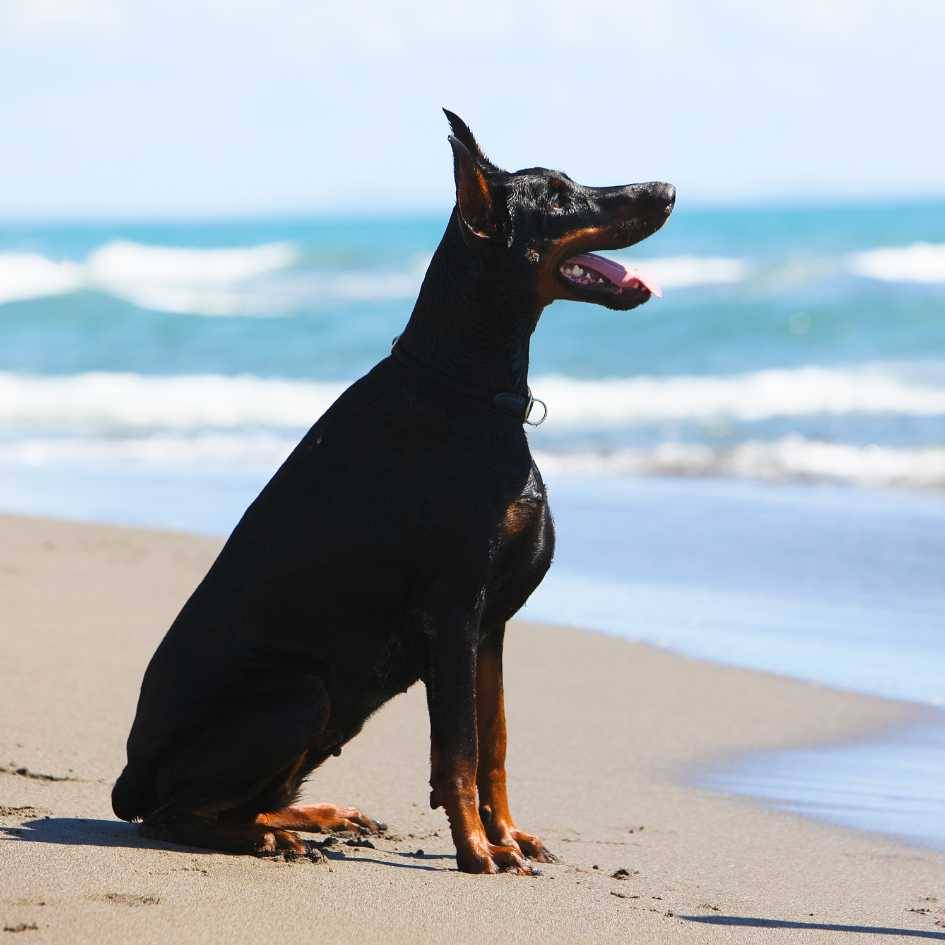
Consistent training and positive reinforcement techniques work best with dobermans, as they are intelligent and eager to please. However, they also require firm and fair leadership to prevent dominance issues. Structured training sessions from a young age help shape a well-mannered and obedient adult.
Doberman puppies should be introduced to various people, places, and situations to foster confidence and adaptability. An experienced trainer or obedience school can offer significant value, especially for new pet parents unfamiliar with the doberman pinscher personality.
Are Dobermans a High-Maintenance Breed?

In some ways, yes — caring for a doberman requires more than average attention compared to some other breeds. Their size, strength, and intelligence demand regular physical and mental stimulation, along with a proactive approach to vet care and socialization.
However, thanks to their relatively low-maintenance grooming needs and general cleanliness, they’re easier to manage in that respect. Think of dobermans as a breed where the investment of time and energy pays off in unwavering loyalty and companionship.
What Makes Dobermans Unique Among Dog Breeds?
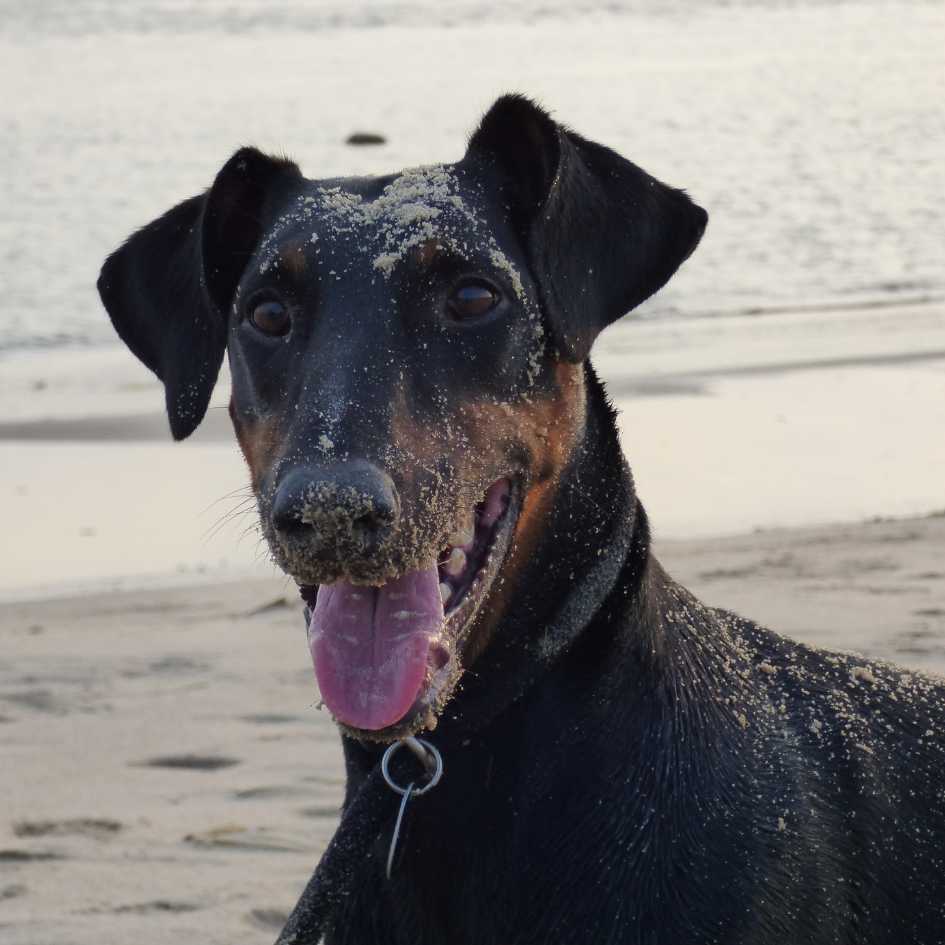
Few dog breeds balance strength, beauty, and intelligence quite like the doberman pinscher. Their striking appearance, combined with their emotional depth and loyalty, makes them a standout. They are both formidable guard dogs and affectionate family members, capable of adapting to various roles — from service dogs to canine athletes.
Organizations like the Doberman Pinscher Club of America advocate for responsible breeding and care, highlighting the breed’s capabilities and noble character. Whether you’re seeking a protector, companion, or both, the doberman fits the bill — provided you’re prepared to meet its needs.
Key Takeaways for Pet Parents Considering a Doberman
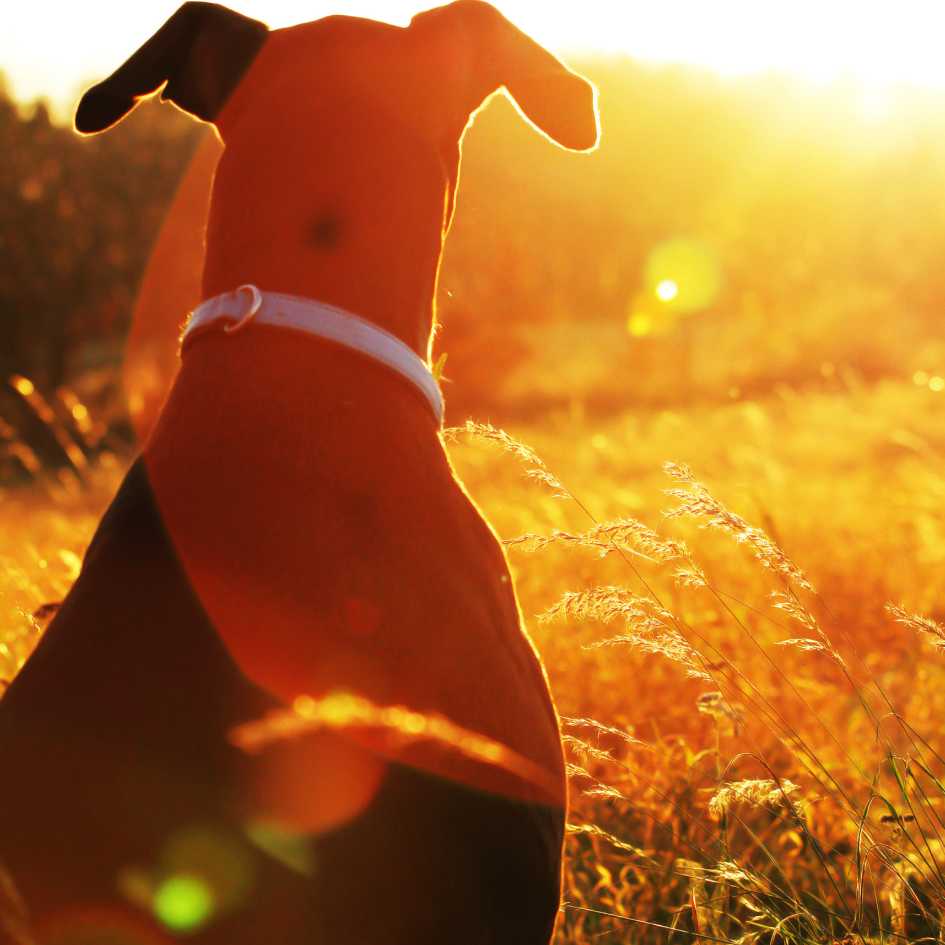
- The doberman was first bred by Louis Dobermann in Germany for protection and loyalty.
- Known for their sleek appearance, dobermans have short coats and require minimal grooming.
- A well-raised doberman is affectionate, confident, and incredibly loyal.
- Doberman pinschers are great family dogs when trained and socialized properly.
- Health risks include dilated cardiomyopathy, hip dysplasia, arthritis, and hypothyroidism.
- Balanced diet, regular exercise, and vet visits are essential to maintaining overall health.
- Use positive reinforcement and consistent training to build a well-behaved pet.
- Mental and physical stimulation is critical to avoid boredom and destructive behavior.
- While not extremely high-maintenance, caring for a doberman requires
dedication and knowledge.
- With the right care, the doberman pinscher dog breed becomes a loyal, intelligent, and loving companion.
Considering a doberman? Make sure you’re ready for the commitment, and you’ll gain not just a pet — but a best friend for life.


